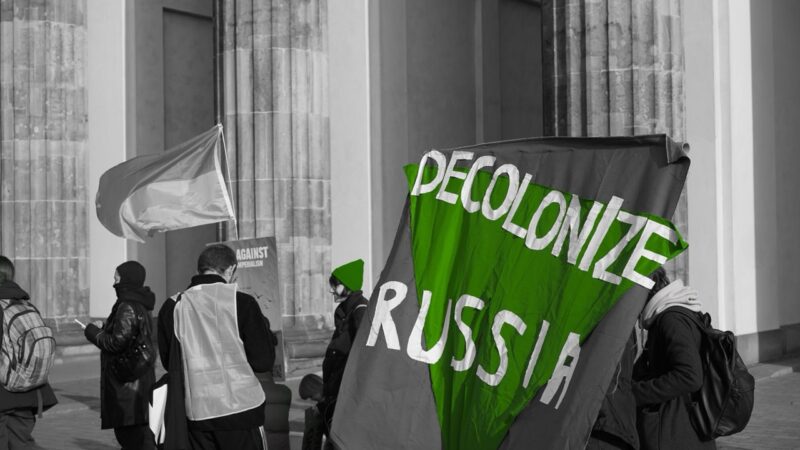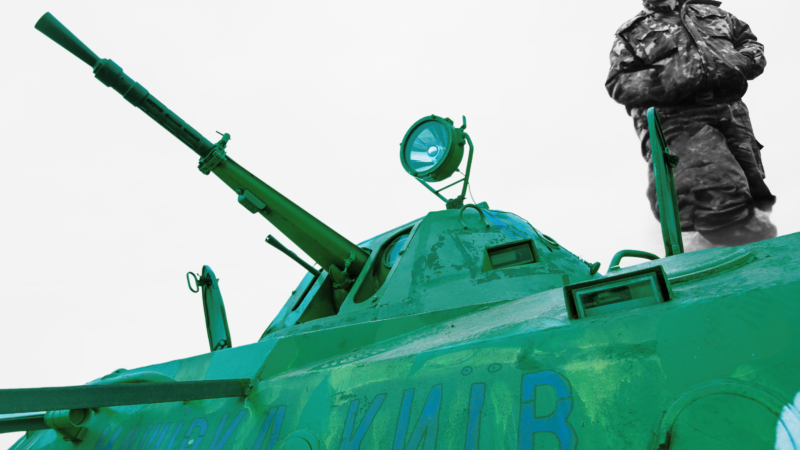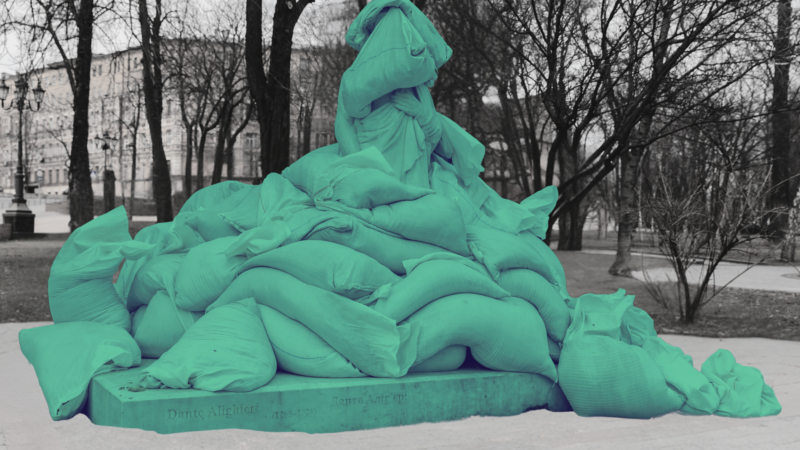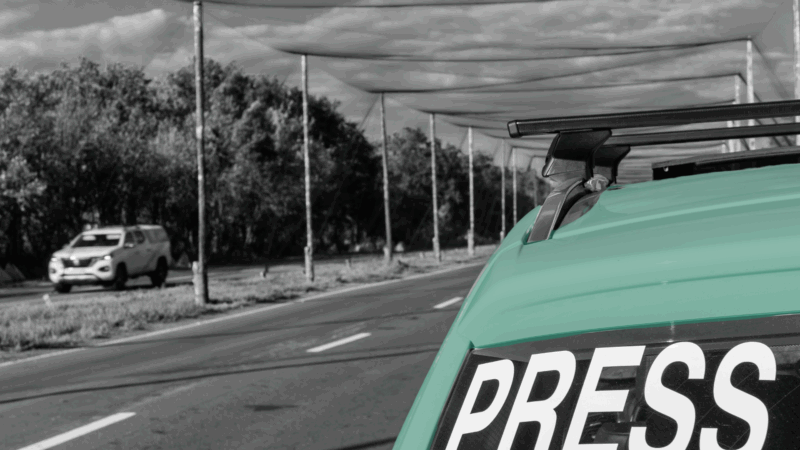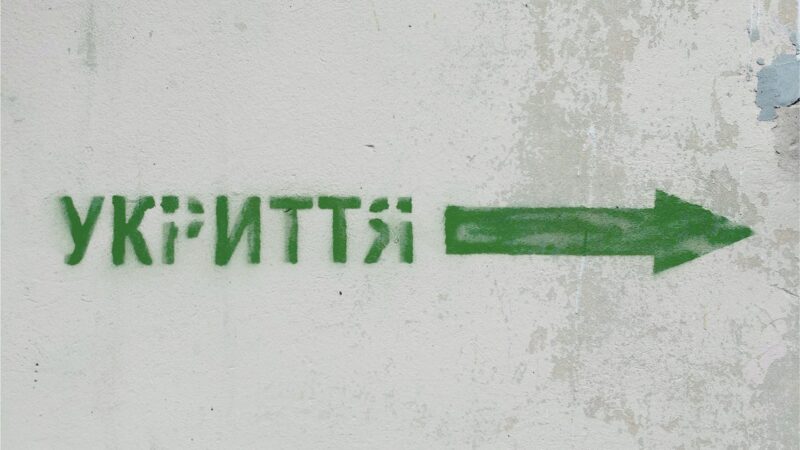Interview with Maria Popova | The only reason there is an inkling of hope is because Ukraine is resisting
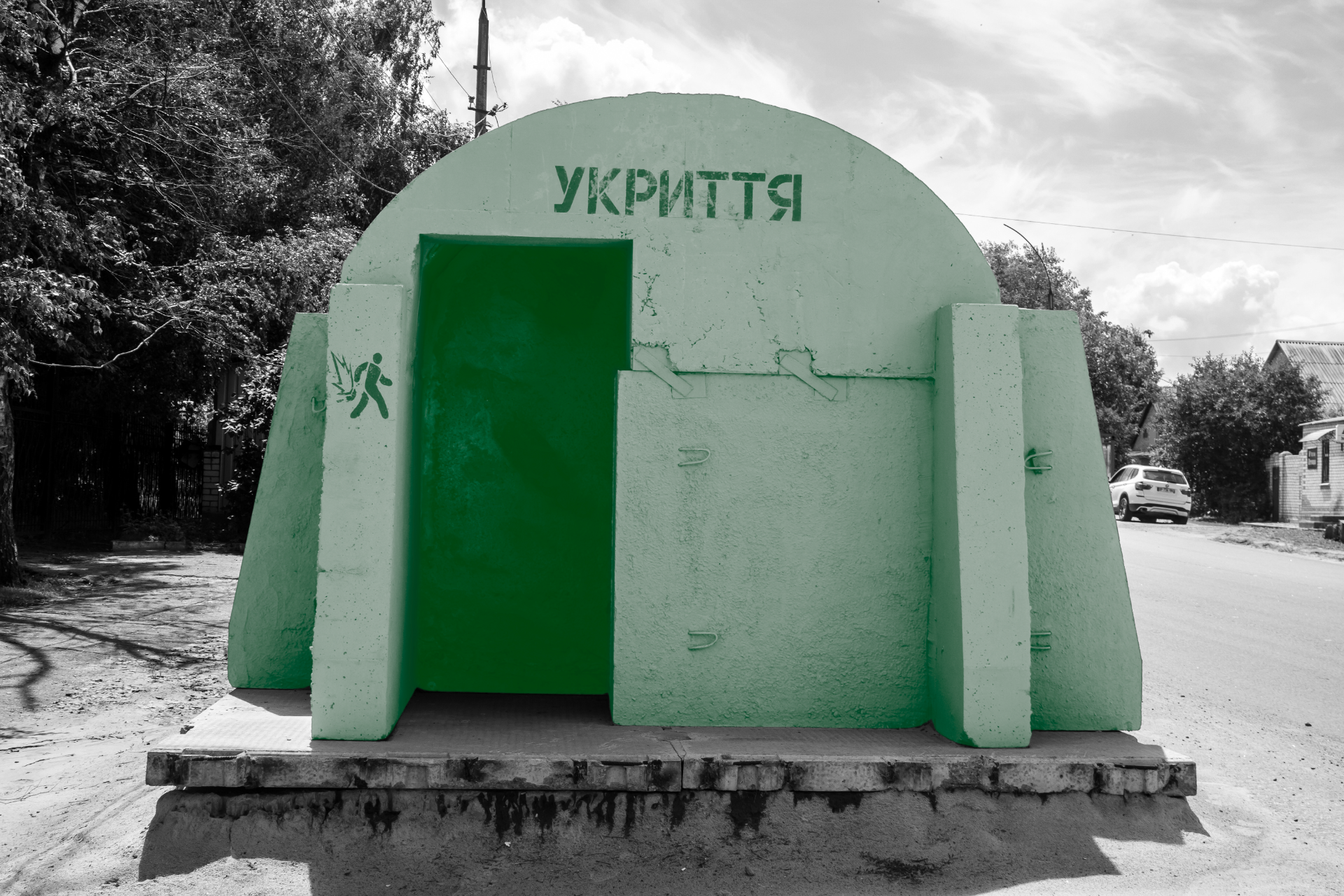
Oleksandr Pankieiev: It has now been over three years since Russia’s escalated invasion of Ukraine began. Based on the dynamics you’ve observed during this time, what do they reveal about the nature of this war and about the state of the international order that allowed it to happen?
Maria Popova: That’s a very important question. When the full-scale invasion began in 2022, there was a dominant argument in much of the West that NATO expansion had somehow angered Russia and that Russia was retaliating. According to this view, the invasion was meant to prevent Ukraine from joining NATO, which would have “encircled” Russia.
In the winter of 2022, this argument sounded logical to many people. But over the past three and a half years, the basis for its support has been steadily eroded. We’ve seen concrete steps by the Russians and events that have proven this idea false. If we assume that Russia was truly afraid for its security and of being encircled by NATO, then what has happened since the invasion makes that argument much harder to sustain.
Over the last three years, we’ve seen Russia’s border with NATO has only expanded, with Finland and Sweden’s accession. These are Russia’s direct neighbours. Yet Russia did not react with panic to this development, nor did it make any serious attempt to stop the process. In fact, it accepted it as a given and even moved some of its troops away from this new NATO border. That reality has shown very clearly that Russia is not afraid of NATO at its borders. This first element of the “NATO provocation” argument has been dismantled by subsequent events.
The second element of that argument is the claim that Russia was particularly afraid not of NATO expansion per se but of the prospect of Ukraine’s imminent NATO membership specifically. Yet three years later, Ukraine’s membership is still on hold and stalled by the same obstacles that existed in 2022, when Russia supposedly invaded to prevent it. Just as before, Germany, France, and the US continued to oppose Ukraine’s accession. Even after the full-scale invasion, Washington continues to de facto block Ukraine’s entry into NATO. This fact dismantles the second part of the argument, that Russia invaded because it feared Ukraine was about to join NATO imminently.
Taken together, the events of the last three and a half years demonstrate that this war was not precipitated by geopolitical wrangling between Russia and the West. Rather, it was driven by Russia’s ongoing goal to destroy Ukraine’s sovereignty and independence.
Another important lesson has also become clear. More and more people now recognize—though unfortunately not everyone—that Ukrainian society is deeply motivated to preserve its independence and sovereignty. At the beginning of the invasion, many still clung to the notion that Ukrainians and Russians were “brotherly nations” or that this was some sort of artificial conflict. But what we have observed is a real rupture between Russia and Ukraine. Russia itself destroyed what was once a friendly relationship, and the break has become undeniable.
Especially in the last five months, we have also seen another common but mistaken claim put to the test by real-world events—that the United States is using Ukraine as a proxy to weaken Russia. The actions of the Trump administration have undermined that argument to the point of unseriousness. For months, Trump has been unsuccessfully pressuring Ukraine to accommodate Russia’s demands, even its most maximalist and unacceptable ones. Clearly, if the US were treating Ukraine as a proxy, we would not see Washington trying to force Kyiv to submit to Moscow. The fact that Ukraine has resisted this pressure so strongly shows there is no “puppeteer-proxy” relationship here.
This leaves us with a striking picture. Ukraine—a country long perceived as a weak state riddled with problems—is resisting both Russian imperialism on one hand and US pressure on the other. Ukraine is essentially standing up to two major powers at once. The implications for the international order are profound. The world order hangs in the balance.
Ukraine is resisting the return to an international order predating World War II and the establishment of the right to territorial integrity. Ukraine is preventing a return to a world order where great powers divide the planet into spheres of influence. The only reason there is an inkling of hope that the international world order will survive this enormous challenge is because Ukraine is resisting. At the same time, Ukraine is defending European security and sending a clear signal that attempts to revive any spheres-of-influence model, whether by Moscow or by Washington, will be met with determined resistance.
Pankieiev: My next question is a little bit more personal. How has the full-scale invasion of Ukraine impacted your work as a researcher? What major developments or shifts have you observed within the scholarly community in response to the war?
Popova: The war has dramatically changed my life as a researcher and greatly increased my commitment to public engagement. Before the escalated invasion, I participated a little in the discussions around the initial Russian invasion of 2014, but over time I pulled back from them to focus almost exclusively on academic work.
In the run-up to the full-scale invasion and after February 2022, it was clear to me that there was an enormous deficit of knowledge about Ukraine among political pundits and the media landscape in general. I see this as one of the main reasons why predictions about how the invasion would unfold were so dramatically wrong. People like to say, “Nobody expected Putin to do this, and we were completely unprepared. It was irrational, so naturally we all missed it.” To me, this is just a rationalization or a way of justifying the fact that the media and the pundit class consistently disregarded Ukrainian voices and experts on Ukraine.
The focus was almost entirely on Russia, on what Putin thought and what the Russian regime’s logic might be. In reality, it was just as important—perhaps more important—to understand Ukraine and the political logic of the conflict from Ukraine’s side, and what Ukrainian society was prepared or not prepared to accept. These failures were already evident in fall 2021, when Russia was making inflated demands and very obviously amassing troops. By January and February 2022, it was clear that the discourse in the West was partial, over-focused on Russia, and heavily influenced by Russian disinformation and manipulation.
That imbalance made me feel I had no choice but to enter the public arena. Whenever journalists called me, I thought, “If I don’t take this call, they’ll go to someone without expertise on Ukraine, someone who doesn’t understand the situation, and the result will be another misguided take.” I began engaging more with the media and broader audiences to bring in this missing piece of expertise, which was sorely lacking in the public discourse.
Pankieiev: In your book Russia and Ukraine: Entangled Histories, Diverging States, co-authored with Oxana Shevel, you employ the term “entangled histories.” Could you elaborate on this concept and how it helps us to understand the origins and trajectory of the current war?
Popova: We ended up using the concept of entangled histories to make the point that Ukraine and Russia have separate histories which over time, and through various incarnations, become entangled like two ropes twisted together rather than an actual “common history.” The idea of a common history is Russia’s preferred metaphor, and many have widely assumed this notion—that there was one shared past which is only now coming to an end. In earlier periods, people often perceived history in this way. Some argued that Ukraine’s “separation” began when Lenin supposedly “created” Ukraine, or in 1991 when the Soviet Union collapsed, or at some other decisive moment when a supposedly common history split apart.
What we argue in the book—and I want to stress that this is Oksana’s contribution—is that this narrative is misleading. It is not a single common history that later diverges. Rather, there are always multiple, parallel tellings of history. History is constructed out of records, but the same facts can be understood in different ways. One interpretation treats them as evidence of a common history. Another sees them as evidence of two separate trajectories, entangled but not identical.
Pankieiev: How would you characterize the Trump administration’s approach to Ukraine at this stage? What are its broader foreign policy priorities, as it seems that Trump is becoming closer to Russia at the moment?
Popova: Unfortunately, what we’re seeing is that Trump’s policy on Ukraine is really just a policy on Russia. What seems to drive him is a desire to reset US–Russia relations and make them friendly again. Ukraine is viewed only as an obstacle to be quickly dealt with in order to achieve that reset. He doesn’t seem to care how the “Ukraine problem” is solved—his actions suggest that his ultimate goal is simply to repair the Russo-American relationship.
This is why he repeatedly talks about the supposed “great economic opportunities” of closer ties with Russia. But it is a manipulation, and I suspect he doesn’t even fully understand what he desires. Russia’s economy is relatively small and not a significant global economic actor that would justify such a priority. If economic opportunity was the real driver, he should be focused on China, whose economy is vastly larger. Instead, he is fixated on Russia, but his logic is unclear.
Trump prioritizes resetting relations with Moscow over addressing the actual root causes of Russia’s invasion of Ukraine—Russian expansionism and aggression. He appears prepared to accommodate nearly any Russian demand, with no clear red lines. Even before negotiations began, he conceded major points, saying that Ukraine would not join NATO and suggesting that the front line should be frozen. He seemed surprised when Russia demanded even more, refusing to accept what he was offering.
Now, he is postponing any major decision. It looks as though he expected that freezing the front line and blocking Ukraine from NATO would be seen as a win by Russia, and that he could pressure Ukraine into agreeing. But he has hopefully discovered two things by now. First, he cannot simply order Ukraine around. Ukraine resists, even as it tries to maintain a diplomatic balance with Washington. Second, Trump should have realized that Russia is unwilling to compromise, even slightly.
This brings us closer to the moment when Trump will have to choose to either continue some support for Ukraine and abandon the idea of a quick peace, or fully align the US with Russia. There isn’t really any compromise. Walking away is not realistic; the war would escalate, and he would be forced to respond anyway. For now, he continues to delay this decision. For how long? We will have to wait and see.
I think he is postponing for two reasons. On the one hand, he knows that the majority of Americans sympathize with Ukraine, not Russia. He therefore needs a certain degree of plausible deniability to claim he is pursuing peace, rather than being seen as obviously siding with Moscow. For the time being, we haven’t seen any significant outward pressure from the Republican Party, but presumably something is happening behind the scenes, given that Trump has not overtly fully aligned himself with Russia.
On the other hand, I suspect he feels a kind of admiration for Putin and shares his worldview of great powers dividing the world into spheres of influence. This comes through not only in his approach to Ukraine but also in his threats toward Canada, including all the talk about a 51st state. It smacks of envy. He thinks, “If Putin can take a neighbour, why can’t I?” For now, Trump is constrained in how he can move forward with this, it remains at the level of rhetoric.
Pankieiev: This leads directly to my next question. Experts and diplomats at various levels remain divided on whether peace talks could realistically bring an end to the war. From your perspective, what are the key obstacles and possibilities that shape the prospects of stopping the war?
Popova: It seems to me that the main obstacle to ending the war through diplomacy is that Russia is not seeking compromise. If Russia were open to compromise, a negotiated solution might be possible, but Moscow has made it clear that it has no interest in moderating its maximalist goals. That’s why it sends only low-level delegates to peace talks with Ukraine and Putin has absurdly suggested a meeting with Zelensky in Moscow. Russia says it is ready to fight on as long as it deems necessary.
Russia has never been the kind of international actor that seeks compromise. Instead, it tends to use diplomacy instrumentally to achieve its objectives. The only conceivable compromise would involve territory, but Russia’s war aim is not about acquiring this piece or that piece of Ukraine. Its goal is to end Ukraine’s sovereignty altogether. That is not divisible [in terms of a compromise—rather, it is an ultimatum]. If the choice is between sovereignty or no sovereignty, there is nothing Ukraine could trade away and nothing Russia would accept short of Ukraine’s capitulation. It makes this a zero-sum conflict, in which Ukraine either survives as a sovereign state or it does not. There is no middle ground. Essentially, Russia is showing no real interest in negotiating.
A second obstacle to the success of these peace talks is that for Russia to be forced into a compromise, it would have to face catastrophic consequences for refusing to do so. Some European leaders—and even Trump, in his way—have hinted at this, but in terms of consequential action, only Ukraine is inflicting significant damage on Russia. By contrast, the US has taken no major steps in the last five months to show what kind of damage it could inflict on Russia. Europe has begun to rearm and increase defence spending, but not at the scale required to compel Russia to rethink its current course. Moscow still calculates that it can outlast Ukraine and its allies by sacrificing a significant share of its people, economy, and wealth to achieve its goal of taking over Ukraine. Without Europe or the US sending a serious signal, Russia will not seek compromise. There is a possibility that Ukraine’s ingenuity in drone warfare and other unconventional methods may eventually force Russia into compromise, but we are not there yet. Significant additional damage needs to be inflicted on Russia’s economy or its war-making capacity before Moscow begins to consider negotiations seriously.
At the same time, while it is clear that Russia is intransigent and committed to destroying Ukraine’s sovereignty, we should not take this to the extreme and imagine Russia as “unbeatable.” We should also abandon the widely prevailing assumption that Moscow is willing to risk nuclear armageddon if it fails to take Ukraine. The last three and a half years have shown that when pushed hard on the battlefield, Russia retreats rationally. At the beginning of the full-scale invasion, the risk of nuclear escalation appeared much higher because we did not know if the Russian elites had lost all connection to rationality. However, they didn’t blow up the world. Russia has already had several chances to escalate dramatically but chose not to, because they do not want to destroy their regime, their country, or the world for this war. Instead, we see Russia making a rational calculation that it will eventually win by outlasting both Ukraine and its allies. This is precisely the calculation Ukraine’s allies can and must change, by making their long-term commitments clear. If they do, then Russia will be forced to reconsider.
Pankieiev : Speaking of Ukraine’s allies, what steps can European leaders take? What can they do at this moment to secure long-term peace and security for Ukraine?
Popova: Over the last three and a half years, both European decision-makers and the public have come to realize that Russia is a threat not only to Ukraine but to the continent as a whole. Russia has signalled repeatedly that if it succeeds in Ukraine, it will not stop there. Most recently, it even declared that the only way to end the war would be for the Baltic states to leave NATO. Europeans now understand the extent to which Russia is a threat. As a result, Europe has launched major programs to rearm, to rebuild military capacity—not only to continue supporting Ukraine but also to strengthen its own defence against a hostile Russia. There is definite movement in that direction.
At the same time, Ukraine has been so effective at holding off Russia that it has created a degree of complacency in Europe. Some governments look at Ukraine’s performance and think, “Ukraine is stopping Russia. Russia is bleeding resources and weakening itself. The danger is not urgent and not yet at our borders.” That kind of reasoning undermines motivation for more serious steps—committing additional resources, or even troops, in order to ensure Ukrainian victory and prevent a wider war in Europe.
In principle, many European leaders understand that this will eventually be necessary. However, for now they are postponing the hardest decisions, much like Trump. Trump delays because he leans towards alignment with Russia. Europe delays—even though it is committed to Ukraine—because it believes it has more time. It’s a paradoxical situation. Ukraine is fighting for survival, but by being so effective at resisting Russia, it has actually reduced the sense of urgency among some of its allies.
Pankieiev: Speaking of the EU, it will soon need to make important decisions about Ukraine’s prospects for membership. How challenging do you think this process will be, given the positions of countries like Hungary and Slovakia, which have aligned with Russia and opposed aid to Ukraine? And how might the recent election of Polish president Karol Nawrocki, who is known for some anti-Ukrainian rhetoric, impact Ukraine’s path toward European integration?
Popova: This is a very important question, because a great deal is at stake. For Ukraine, EU membership is absolutely essential to its sovereignty. EU membership matters not only economically but also symbolically. It would send a clear signal to Russia that Ukraine has irreversibly left behind Moscow’s dream of a renewed empire.
It’s worth noting how much faster Ukraine’s path has been than anyone expected. When Ukraine officially applied for membership in spring 2022, most observers were talking about decades-long timelines. Yet just two and a half years later, negotiations have already opened; in the cases of other countries, this has taken decades. It is an encouraging sign, and Ukraine has been pushing through many necessary reforms. The process has been much smoother than expected on the technical side.
The real challenge lies on the political side. If Hungary was the only obstacle, we would have less to be worried about. We’ve already seen how Hungary eventually folded under pressure, despite its delay tactics, concerning Sweden and Finland’s entry into NATO. Unfortunately, other complications have arisen, and further problems may occur in the future. The recent election in Romania had a positive outcome for Ukraine, but Romania could also pose a problem if it suddenly discovers its own historical disputes or agricultural policy issues with Ukraine, as Poland has after its recent presidential election.
That said, EU enlargement tends to create its own momentum. Once the process advances, it becomes harder to stop completely. Leaders who say today that they oppose Ukraine’s entry do so partly because no immediate decision is required. When the moment of decision actually comes, political dynamics often shift. I would describe the process as fraught but workable. All possibilities remain realistic, from prolonged delays to sudden breakthroughs. Much will depend on whether Ukraine’s accession is viewed as inevitable by EU members in one way or another.
Pankieiev : A common narrative is that Ukraine is “too corrupt” to be admitted to the EU. Since one of your research interests is anti-corruption efforts in Ukraine, could you elaborate on the current state of corruption in the country? And second, to what extent might this narrative be exaggerated or even used as a tool of Russian disinformation and propaganda in order to influence decisions about Ukraine’s EU membership?
Popova: I think it’s important to recognize that corruption in Ukraine is very much used as a tool of Russian propaganda, and an effective one. Ukraine has often been portrayed as uniquely corrupt, when in reality its level of corruption is similar to other Eastern European countries.
If we look at corruption indices, after ten years of reforms following the Maidan, Ukraine is at a level typical of other countries upon EU accession. Corruption remains an issue, and Ukrainian society debates it vigorously, but there is no doubt that significant progress has been made. The institutional infrastructure now exists for a real breakthrough in fighting corruption.
The war has created new and unique challenges. We’ve seen corruption scandals around mobilization, such as abuses in the process of determining who goes to the front. However, Ukrainian society remains vigilant, which is why these issues provoke such strong discussion when they arise. At the same time, many of the fears voiced in early 2022 have not materialized. Weapons provided to Ukraine are not flooding black markets. Western money is being tracked and accounted for. That is why the Ukrainian government has been open to demands for transparency; it is confident that aid is being used for the war effort. The very fact that Ukraine continues to fight as effectively as it does is itself proof that this money is not being wasted.
The fears of early 2022 and the narrative of Ukraine as profoundly corrupt have been weakened to some extent. When I submitted an article on this topic, one of the reviewers even wrote back saying that we all now know the problem was exaggerated. That was encouraging to hear, because it shows a shift in awareness. Nonetheless, corruption will continue to be a tool of Russian disinformation. The Kremlin will continue to use it to undermine support for Ukraine, and it will find a receptive audience in certain quarters like the MAGA movement. However, overall there is progress and growing recognition that the corruption narrative is overstated.
